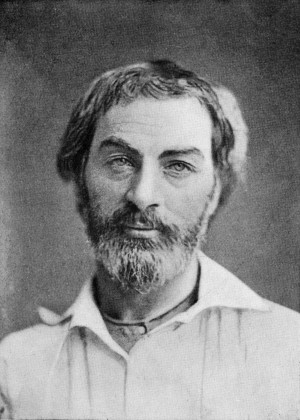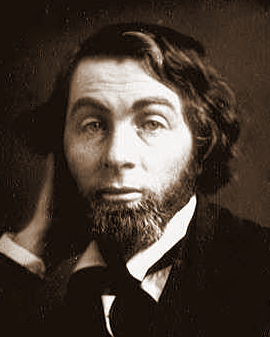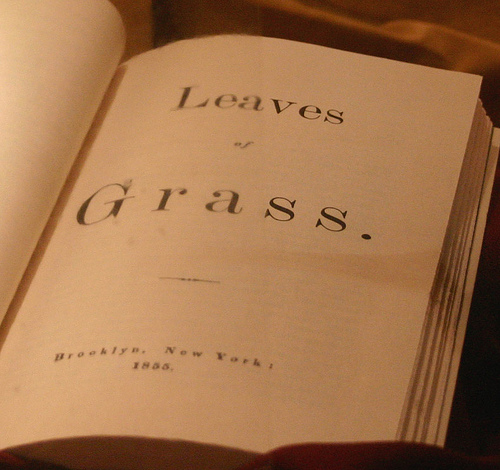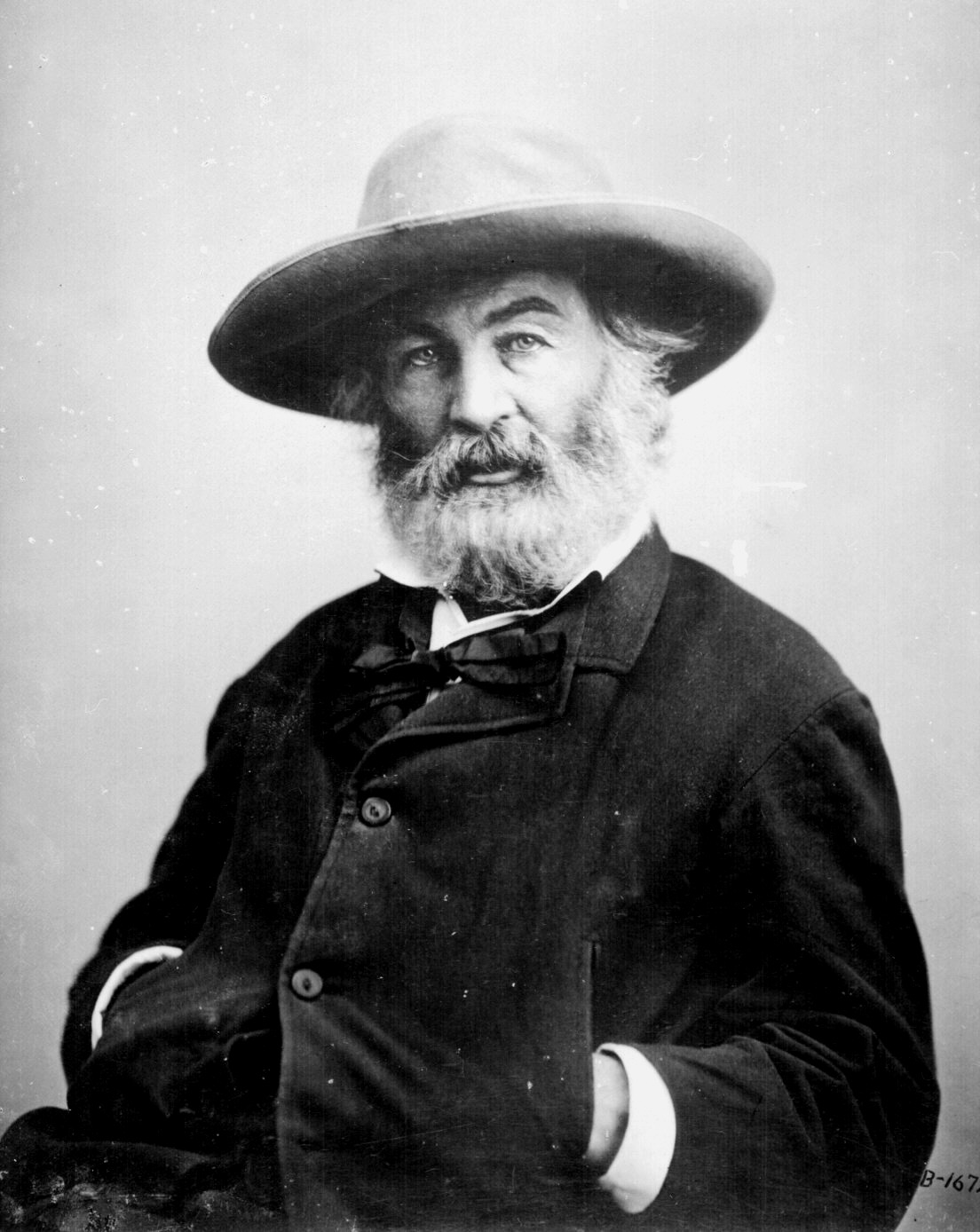Beyond Belief: The Political Whitman
by Kerry Larson
~
For this volume editor John Seery has commissioned ten essays by political theorists from across the country to assess the politics of that self-professed champion of democracy, Walt Whitman. To establish parameters for the discussion, he has also reprinted essays on the poet by George Kateb, Nancy Rosenblum, and Martha Nussbaum originally published in the 1990s. Seery points out that, as a general rule, political scientists and political philosophers have had little occasion to comment on Whitman. This collection gives them the opportunity to do so.
The tone for much of what follows is set by Kateb’s essay, which leads off the volume. For Kateb, Whitman is “a great philosopher of democracy” (19) because his writing is everywhere intent on drawing out the full moral and existential significance of a rights-based individualism, cornerstone of liberal democracy. A key assumption of his account is that such an individualism is a “strange idea” whose true implications are in constant danger of being simplified, overlooked, or irreparably distorted. A poem like “Song of Myself” is exemplary for Kateb in getting us to see how democratic individuality is “valuable mostly as a preparation for receptivity or responsiveness” (20). Here, in his best-known poem, the bard sings and celebrates a self that is not a historical person but “a composite democratic personality” which, in “its tolerance, its hospitableness, and its appetite for movement, novelty, mixture, and impurity” affirms the best qualities of a “democratically receptive culture” (37). Personal eccentricity and empathic connectedness go hand in hand. The self, Whitman’s poetry continually shows, is composed of many selves, a discovery that not only accounts for the perennial “strangeness” of identity but is decisive, in Kateb’s account, for creating an enriched appreciation for the strangeness and diversity of other selves.
Others, taking stock of what Cristina Beltran calls Whitman’s “amazing mobility of identity,” go along with the substance of Kateb’s analysis while worrying at its possible limitations. For Beltran, “Whitman’s all-encompassing ethic sometimes faltered as the poet associated slaves, blacks, and blackness with that which was repellent and/or corrupt” (68), while Terrell Carver finds that Whitman’s “universalizable concept of democracy” betrays a masculine bias that reduces “female difference [to] domesticity, child care, and sexual availability to men” (236). Similar reservations emerge for Michael J. Shapiro, whose “Whitman and the Ethnopoetics of New York” argues that Whitman’s “side-by-side and monocular and optimistic (often dissensus-denying) point of view” does not always do justice to “the micropolitics of the city” (210). But calling attention to the limits of inclusiveness in Leaves of Grass doesn’t make inclusiveness any less privileged as a critical ideal, and in this sense interpretations of the kind advanced by Kateb (or Martha Nussbaum, who shares many of the same views) are prepared not only to take such demurrals in stride but welcome them. So long as recognition controls one’s sense of what counts as political, expanding the scope of recognition may be viewed as advancing the cause of the political. Thus for example when it comes to considering a topic like equality, it’s “equality of respect” (237) that trumps all other considerations in the majority of these essays. Democracy here is primarily a matter of “feeling right,” to recall Stowe’s exhortation at the end of Uncle Tom’s Cabin. By and large, it is less a matter of beliefs one might accept or reject than a collection of dispositions and perceptions that one can either experience or fail to experience.
Behind this outlook lurks the old suspicion, voiced most memorably by European thinkers like Hegel and Tocqueville, that liberal democracy doesn’t stand for anything in particular, that it is destitute of higher principles—unless doing as one pleases can be called a higher principle. Kateb and others are excited by Whitman’s verse, notwithstanding its occasional blind spots, because it puts flesh on that threadbare skeleton, rights-based individualism. To read through A Political Companion to Walt Whitman is indeed to discover that the conventional terms of social critique have been turned on their head: rather than the interpreter exposing the mystifications and bad faith of hegemonic practices that perpetuate injustice, we have commentators endeavoring to identify the terms of a mythology robust enough to animate core principles that by themselves are “too thinly cognitive . . . [and] too narrowly calculating” (156) to win full allegiance. Strange as it may seem to describe a collection of analytic essays along these lines, this attempt at extrapolating an ideology worth getting excited about does have the advantage of following the poet’s lead, most especially in his long prose tract written after the Civil War, Democratic Vistas, which begins with the author affirming that, while the United States is incontestably a democracy now that it has passed its severest test, the country nevertheless urgently requires bards to instruct a materialistic and myopic people in the true lessons of democracy. It is in this context that Whitman calls upon his successors to produce the “great poems of death” that might model a vision of democratic governance not motivated by fear or simple self-interest. In an inspired move, the editor dedicates the concluding section of the book to the topic of death and citizenship and includes essays by Peter Augustine Lawler, Jack Turner, and Morton Schoolman that, taking Democratic Vistas as a key text, insightfully probe into the relation between these two vital elements in Whitman’s poetry and prose.
The larger question raised by A Political Companion to Walt Whitman is whether its efforts at ideological retrieval and rehabilitation succeed. Kateb’s account of Whitman’s poetics of empathy is undeniably stirring, but there is a sense in which it is no less abstract or dogmatic than the core beliefs it is meant to enshrine and ennoble. This becomes apparent when Kateb pauses to denounce Whitman’s nationalism on the grounds that its sense of group identity is invidiously restrictive (he says the same about Whitman’s calls for “manly friendship”). But if the objects of the poet’s “receptivity and responsiveness” are in theory boundless, then it would appear that not just nationalism (or homosexuality) is unacceptably restrictive as markers of identity, but virtually any object of the poet’s empathy. The point is not that empathy is stretched thin and thus made superficial by the sheer multiplicity of experiences the world has to offer, as D. H. Lawrence once complained. Rather, the imperative to identify with any and everything necessarily means, as a matter of principle, identifying with nothing in particular. Empathy itself becomes an abstract gesture. Putting receptivity and responsiveness first is a self-defeating policy if it’s really receptivity and responsiveness that we most care about. From this standpoint, I agree with Nancy Rosenblum, who points out in her response to Kateb’s essay that Leaves of Grass invites us to regard democracy as above all an aesthetic spectacle of sublimity and for this reason is more “public than civic” (56). By this Rosenblum means that Whitman’s brand of egalitarianism does not “translate nicely into defense of rights or representative value” since his “attraction to democracy . . . is not to other men and women personally and individually” (56) but rather to a dazzling parade of types such are as put on display in the famous catalogues, where beauty attaches to the abstract idea of a collectivity that for Rosenblum remains expressly independent of any political outcome. (In another essay, Jane Bennett likewise de-couples the poet’s stance from any determinate political result in the course of offering an interesting meditation on the importance of impersonal judgment in Leaves of Grass.)
Rather than the interpreter exposing the mystifications and bad faith of hegemonic practices that perpetuate injustice, we have commentators endeavoring to identify the terms of a mythology robust enough to animate core principles that by themselves are “too thinly cognitive . . . [and] too narrowly calculating” (156) to win full allegiance.
I conclude with a comment on method. Kateb’s opinion that Whitman’s nationalism is of “secondary importance” (21) and so can be safely excised from our accounts of his work is not necessarily shared by other contributors; Jack Turner, for example, defends this theme on the grounds that it upholds “public identity” in overcoming “privatism” (165). But whether for or against, this pick-and-choose approach blurs the line between trying to understand what Whitman meant and trying to coax various pieces of a poetic puzzle into a picture that will seem compelling to today’s reader. It blurs, in other words, the difference between interpretation and extrapolation. To bracket Whitman’s interest in nationalism because it doesn’t conform to his larger project (or to put it back in because it does) may put us in touch with “the Whitman that matters” (24) for (some) contemporary readers of the poet, but the practice of playing up or playing down various aspects of his writing has nothing to do with interpreting that writing. The blithe disregard of this distinction is all the more striking given the persistent valorizing of openness and the need to accept perspectives at odds with our own beliefs. Martha Nussbaum, to take a further example, is a great believer in “working for a society that treats every [man and woman] as an end, and [not] as a mere tool for others” (100) and applauds Whitman for embracing just this principle. But this doesn’t prevent her from recoiling from his “mystical views of oneness” in certain (unidentified) poems late in his career since in such instances the poet “does not seem to grasp how much at odds these ideas are with his project of teaching America and Americans to accept death” (123). The idea is that poems are instruments—“mere tools,” as it were—for advancing a project and are to be evaluated as such. Actually listening to what the poet is attempting to convey in a particular text drops out as a secondary consideration. The elevation of tolerance and pluralism at the thematic level paradoxically circumscribes the extension of genuine critical interest at the interpretive level.
Perhaps it will be said that literary critics such as yours truly are bound to have their own ways of dealing with texts while the political theorists are bound to have theirs. But in fact I don’t think this confusion between interpretation and extrapolation—between understanding and relevance—has much to do with disciplinary differences. Perhaps the most surprising lesson of A Political Companion to Walt Whitman is how little is lost in the translation across this divide. The identitarianism alone shared by so many (though not all) of the contributors—the premise, that is, that a vitally important connection exists between the experiences that one goes through and the beliefs one ends up acquiring (as when Kateb or Nussbaum tell us that discovering the strangeness within ourselves will enable us to appreciate the strangeness in others)—is for most (though not all) members of literature departments a truism too obvious to need defending. Further, this privileging of a politics of identity has, in reaching across the humanities, created the conditions for what increasingly seems to be the default model for a great deal of scholarship in this area, where the kind of close reading made standard by the New Criticism decades ago is joined to an attempt to lay claim to political relevance of one kind or another. Not always as helpful as it could be in exploring the sources and shape of Whitman’s actual political beliefs (only Lawler mentions the importance of Thomas Paine, for example; the index mentions Barnburners and Loco-Focos not at all), A Political Companion to Walt Whitman nonetheless provides an interesting occasion to reflect on current attempts to articulate the relationship between politics and art in the writings of a figure frequently preoccupied by the same question.
__________
Kerry Larson
University of Michigan





Leave a Reply